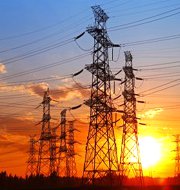POSOCO renamed as “Grid Controller of India Limited”
India’s national grid operator Power System Operation Corporation Limited (POSOCO) was renamed as Grid Controller of India Limited.
About Grid Controller of India Limited (Grid-India)
- The Grid Controller of India Limited (Grid-India) is a wholly owned central government enterprise that comes under the aegis of the Ministry of Power.
- Previously, it was a fully owned subsidiary of the Power Grid Corporation of India Limited (Powergrid) – the central public sector undertaking (PSU) owned by the Union Power Ministry.
- It was set up in March 2009 to take care of the power management functions of the PGCIL.
- It was later made a separate company, with PGCIL being involved only in setting up transition link.
- Grid-India, as a separate company, was given the load despatch functions. It oversees the operations of the national load despatch centre (NLDC) and 5 regional load despatch centres (RLDCs). The NLDC is the apex body that ensures the integrated operation of national power system.
- Grid-India currently works as the nodal agency for major reforms in the power sector like the implementation and operation of Green Energy Open Access Portal, Renewable Energy Certificate (REC) Mechanism, transmission pricing, short-term open access in transmission, deviation settlement mechanism, Power System Development Fund (PSDF) and others.
Why was the name changed?
The name was changed to reflect the important role played by the grid operators in ensuring integrity, reliability, resilience and sustainable operation of the Indian electricity grid. It also points to the unique position held by the Grid-India in connecting people to energy they use. The name reflects the functions performed by the grid managers in India at the national and state levels. It also explains the role played by the Grid-India in the country’s transition towards renewable energy. It also reflects the vision of the PSU to become a “global institution of excellence for reliable and resilient power systems, fostering efficient electricity markets, promoting economy and sustainability”.
Month: Current Affairs – November, 2022
Category: India Nation & States Current Affairs


